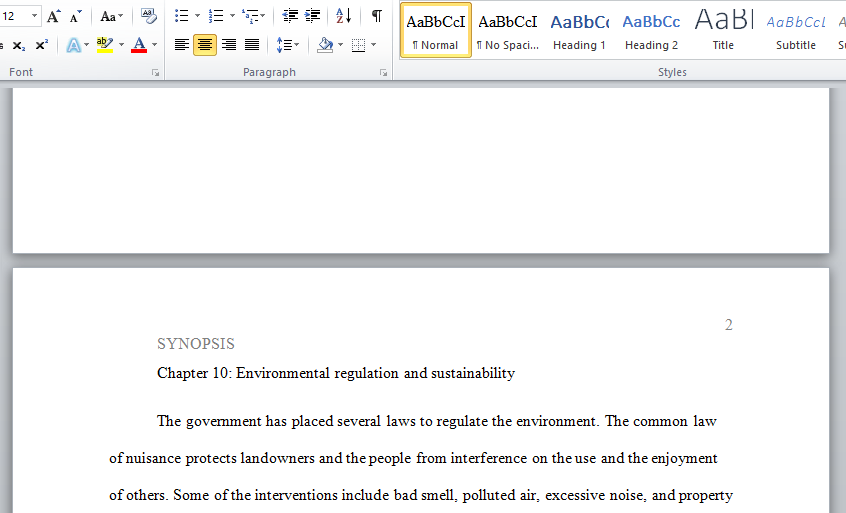Write a synopsis on the topic environmental regulation and sustainability
below are the case briefs
CASE BRIEF 11.2 A.B. & S. Auto Service, Inc. v. South Shore Bank of Chicago 962 F.Supp. 1056 (N.D. Ill. 1997) FACTS: A.B. & S. Auto Service is owned by Jerry Bonner, an African-American. Bonner, on behalf of A.B. & S., applied for a loan at South Shore Bank. The application asked for a personal history and Bonner revealed an extensive arrest record. The loan officer approved the application, but the committee denied it based on his criminal record. South Shore Bank has made at least three business loans to applicants with criminal records, at least one of whom was an AfricanAmerican. Bonner filed suit under the ECOA. ISSUE: Was South Shore’s denial a violation of the ECOA? DECISION: The denial was based on a criminal record, not race. There was a legitimate business reason for the denial.
Questions: 1. What, according to Mr. Bonner’s expert, is the impact of considering criminal records of applicants? Did the evidence support the expert’s testimony? 2. Is the use of a criminal record in making a decision to extend credit a violation of the ECOA? Explain. 3. Do you think a criminal record is an indication of character? Explain.
CASE BRIEF 10.1 Spur Industries, Inc. v. Del E. Webb Dev. Co. 494 P.2d 700 (Ariz. 1972) FACTS: Spur Industries operated a cattle feedlot near Youngtown and Sun City (communities 14 to 15 miles west of Phoenix). Spur had been operating the feedlot since 1956, and the area had been agricultural since 1911. In 1959, Del E. Webb began development of the Sun City area, a retirement community. Webb purchased the 20,000 acres of land for about $750 per acre. In 1960, Spur began an expansion program in which it grew from an operation of five acres to 115 acres. Webb began to experience sales resistance on the lots nearest Spur’s business because of strong odors. Nearly 1,300 lots could not be sold. Webb then filed suit alleging Spur’s operation was a nuisance because of flies and odors constantly drifting over Sun City. At the time of the suit, Spur was feeding between 20,000 and 30,000 head of cattle, which produced 35 to 40 pounds of wet manure per head per day, or over one million pounds per day. DECISION BELOW: The trial court enjoined Spur’s operations and Spur appealed. ISSUE ON APPEAL: Could Spur be enjoined from operating on the grounds of being a nuisance? Did Webb owe compensation? DECISION: The court held that the cattle operations created a public nuisance that needed to be enjoined. However, the court also noted that Del Webb had moved to the nuisance and Spur had begun operations in a remote area before the city had grown and that it could not anticipate that it would have caused a nuisance in that remote area at the time of its creation. Therefore, Del Webb was required to compensate Spur – an amount of $11 million was later agreed upon by the parties. Questions: 1. What were the factors that made Spur’s activities a nuisance? 2. Should it make any difference that Spur was there first? 3. How does the court balance retirement communities and beef production, two of Arizona’s biggest industries?
Answer preview :

Word limit : 566 words
